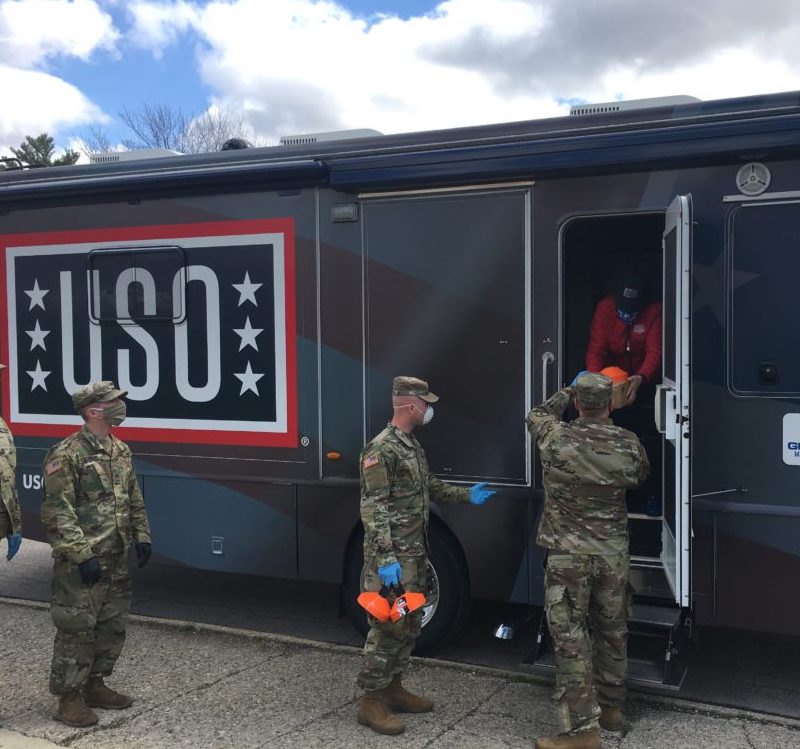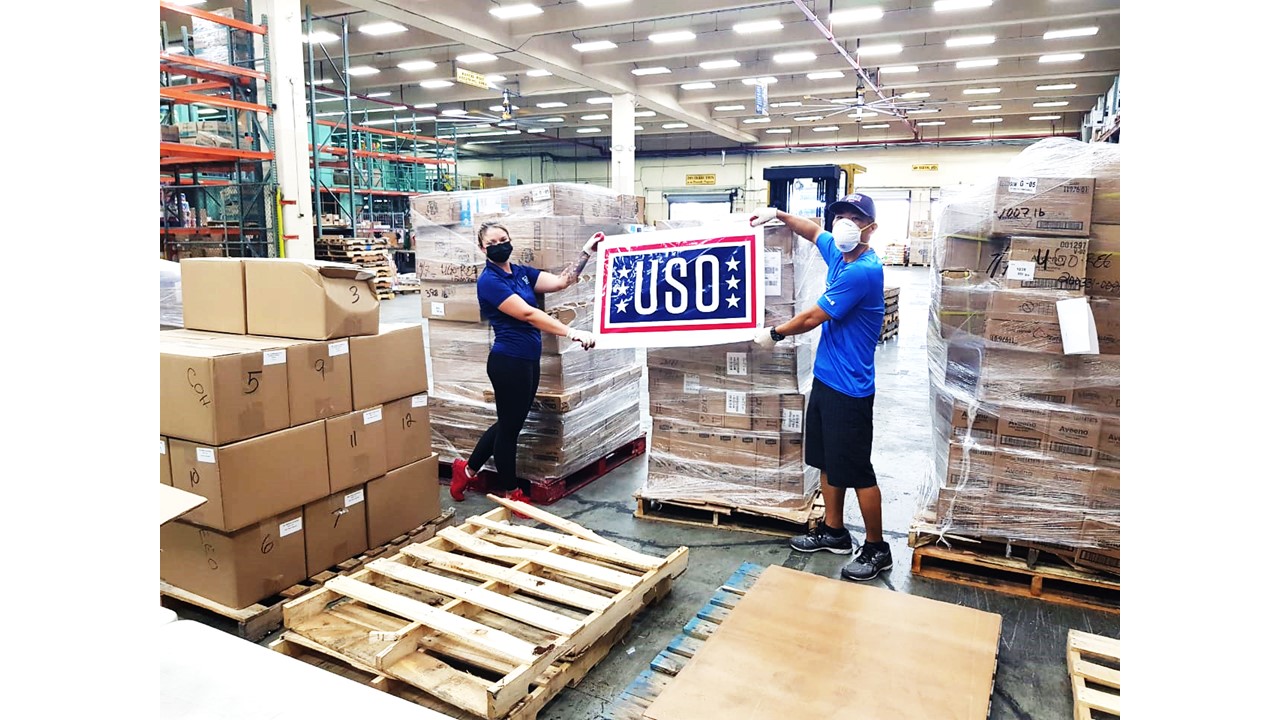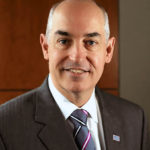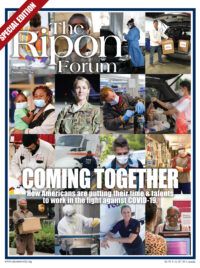For the USO, the war may be different, but the mission remains the same

At the USO, we say: “A strong America is a force for good in the world. And a strong military is necessary in the world we live in. The USO keeps our military strong by connecting them to family, home and country.” We are a global team, operating on five continents at more than 250 locations. Our mission of connection continues to be more critical than ever.
So, how can the USO continue to be the Force Behind The Forces® of the five million active duty, Guard, Reserve and family members in the wake of COVID-19 — during a time of social distancing, quarantine and isolation — when so much of the tempo of military life has changed? Our answer, “Change with it.”
We set priorities: Protect our Force. Deliver our Mission. Enable our Partners. Plan for Change.
Protect Our Force
Leadership requires recognizing what is most important and what must be protected at all costs. At the USO, that is our 600 employees and our 30,000 volunteers. Their personal health and safety remain our number one priority. But as important, without them, we cannot continue our mission.
As the pandemic news hit, I kept asking myself, “What is the right thing to do for service members and their families?” We realized the USO could inadvertently become a vector for the spread of the virus among service members at one of our many airport locations and base centers. We determined we had to temporarily suspend traditional operations at these USO facilities and pivot to a virtual global presence.

We understood there was a huge stress on employees and our volunteers. That stress was caused not just by wanting to be safe but also by wanting to continue their important work. People need protection and purpose. We took steps to assure them they were still needed and that enabled them to work from home or continue their field work supporting our troops.
As the pandemic news hit, I kept asking myself, “What is the right thing to do for service members and their families?” We determined we had to temporarily suspend traditional operations at these USO facilities and pivot to a virtual global presence.
A critical lesson learned from the crisis is the near insatiable desire for communication. One of the most important things we did was meet in virtual open forums for our employees and volunteers, so they had a direct line of communication with leadership. When there is a lack of communication, uncertainty and false information will fill the void.
Deliver Our Mission
We innovated rapidly, deploying safe distance and virtual programming platforms, building on work we had begun before the pandemic. Our IT and global programming teams are the real heroes in this effort. These platforms have enabled us to be there for quarantined service members in Kandahar and Korea, military medical personnel serving in New York and Los Angeles with the hospital ships USNS Mercy and Comfort, sailors onshore and aboard the USS Theodore Roosevelt in Guam, and National Guard soldiers all over America responding to the COVID pandemic. We brought Martha Stewart to a virtual homebound crafts party in which 18,000 unique viewers tuned in, enabled a young Air National Guardsman stranded in Erbil, Iraq to be “in the room” with his wife for the birth of their daughter, and threw two virtual baby showers featuring Heidi Murkoff and 63 expectant and new military parents in Bavaria!
Enable Our Partners
Crisis is a time to strengthen your partnerships. We reached out to all of our key stakeholders – our Governing Board, military and political leaders, base commanders, many military support organizations and our supporters and donors – to communicate not just what we need, but what we are doing for our troops and what we can do to support our partners. Just as our own USO team was looking for purpose, we found the same desire among our partners. As a result, our military leaders are now requesting new services and the reopening of our centers, our donors are leaning in, and we are working across the military service sector to lead and support.
Plan for Change
As the magnitude of the pandemic sunk in, we resolved to document the many good things — yes good things — that had come from it so we would not lose sight of them when the new normal arrives.
These platforms have enabled us to be there for quarantined service members in Kandahar and Korea, military medical personnel serving in New York and Los Angeles with the hospital ships USNS Mercy and Comfort, sailors onshore and aboard the USS Theodore Roosevelt in Guam, and National Guard soldiers all over America responding to the COVID pandemic.
Surprisingly, working remotely — and the virtual communication channels required to do so — broke down organizational silos and formed new working relationships across our operational teams and headquarters. The need to collaborate quickly broke down bureaucratic barriers that should never have been there in the first place. We are resolved to keep them broken!
We didn’t know when our centers would reopen yet we began planning for it almost immediately. This allowed us to think through what would change, what would stay the same, and which of the new innovations prompted by the crisis we wanted to strengthen. As importantly, it gave everyone on the team – me included! – confidence that we will get through this together and that the “crisis” would one day end.
I am proud of the way our USO – a precious American institution – has adapted and worked together in these past weeks. Our organization has changed forever. But not our mission. Crisis is not new to the USO — we have always been an organization “ready to go to war.” But this one feels different. We will emerge stronger from this crisis knowing we overcame it together.
You can read more in detail about how we mobilized and helped service members and military families being impacted by the outbreak at uso.org/coronavirus.

Dr. J.D. Crouch is the 23rd President and Chief Executive Officer of the United Service Organizations (USO).




